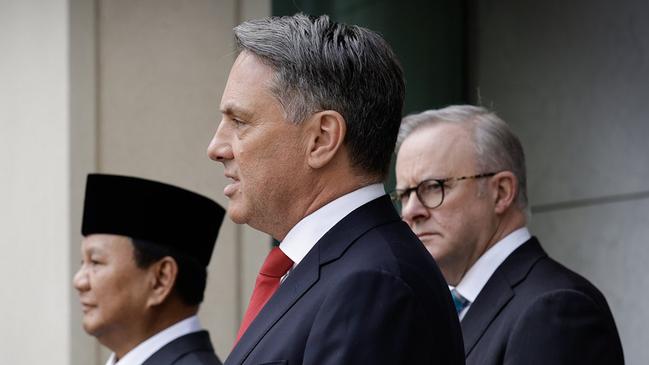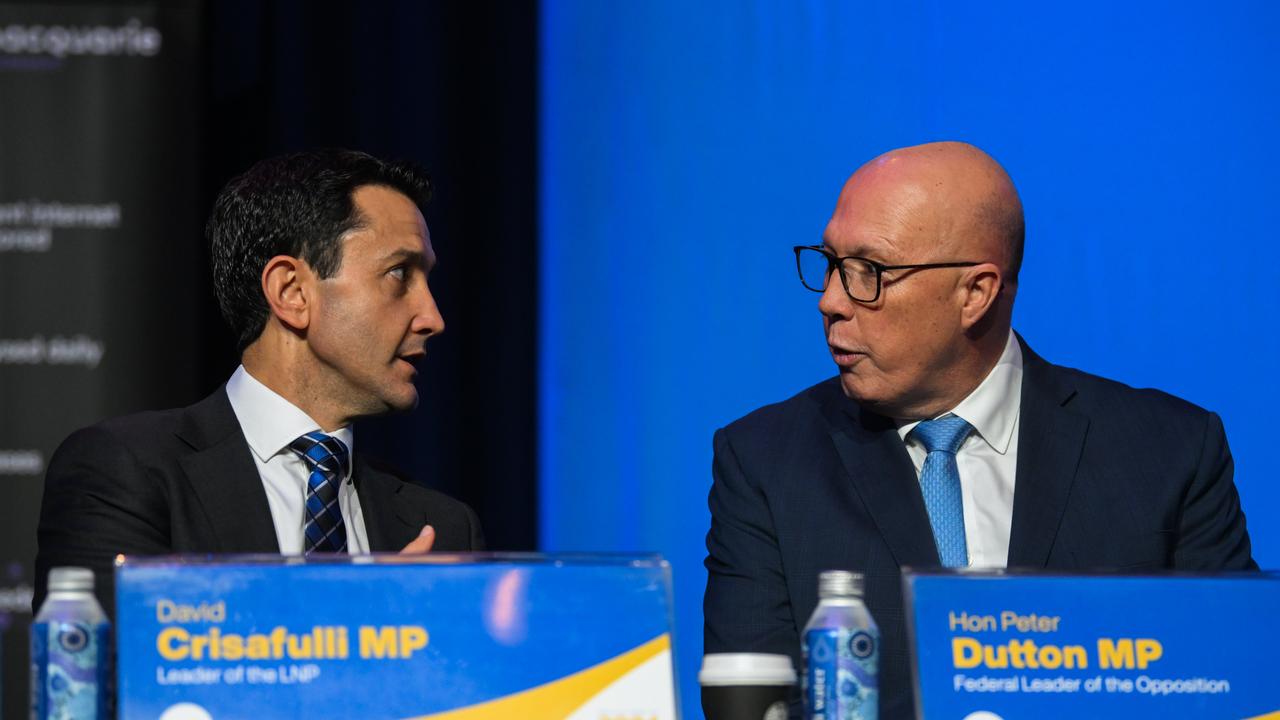
In the 1960s, Robert Menzies was so concerned about the prospect of a hostile Jakarta that he ordered F-111 bombers for the RAAF.
Tensions between the countries flared again in the 1990s, with Australia’s leading role in supporting East Timor’s independence sparking suspicion and resentment in Jakarta.
It’s a testament to the work of successive Australian and Indonesian leaders that, a quarter of a century on, the nations have signed a treaty-level defence agreement.
Richard Marles rightly describes the pact as a “profoundly significant” one. Indonesia is a nation of 280 million people on Australia’s northern doorstep, and by the middle of the century it is forecast to be the world’s fourth-largest economy after China, the US and India.
With greater economic power will come strategic heft, and a stronger Indonesia that is friendly to Australia is unequivocally in our national interest.
Importantly, the agreement is not an alliance, and will not compel either country to come to the other’s aid in a strategic crisis.
As Indonesia’s president-elect, Prabowo Subianto, told Anthony Albanese and his ministers at Parliament House on Tuesday, his country is not about to abandon its non-aligned status, describing the pact instead as a “good neighbour policy”.
What it will do, though, is give Australia the opportunity to work with Indonesia to modernise its defence force from the ground up, while building vital connective tissue between the nations’ military personnel and commanders.
In doing so, Australia can help Jakarta to be in a position to defend its own interests against an increasingly assertive China.
As the Lowy Institute’s Sam Roggeveen tells The Australian: “We shouldn’t make the mistake in thinking this gets Indonesia off the fence into the pro-Western camp.
“Ultimately, the objective here should be to do everything we can to encourage Indonesia to take up its leadership role in Southeast Asia. And I think as that natural leader, it would have to come to the conclusion that it is very difficult to live in a region which is militarily dominated by China.”
Beijing is already wary of Indonesia, which has maritime claims within China’s so-called Nine Dash Line in the South China Sea but doesn’t face the sort of harassment meted out to The Philippines and Vietnam.
Supporting Indonesia to develop its naval capabilities, in particular, will reinforce the rules-based order in the hotly contested waterway, while strengthening the country’s value as a strategic bulwark for Australia against any hostile powers further north.
The agreement also represents tacit Indonesian acceptance of Australia’s centrepiece defence strategy – the acquisition of nuclear submarines under AUKUS – which Jakarta has been wary of since it was announced.
By the same token, it underscores Australia’s own reluctance to press Indonesia over human rights concerns in West Papua. But those concerns have long been muted as Australia prioritises its strategic relationship with Jakarta.
Australia’s isolation and the buffer provided by the Indonesian archipelago have long been the nation’s greatest strategic assets. Strengthening military ties with Jakarta will give potential adversaries even greater pause for thought.




Long before China emerged as Australia’s dominant strategic threat, it was fear of Indonesia that kept our military planners awake at night.